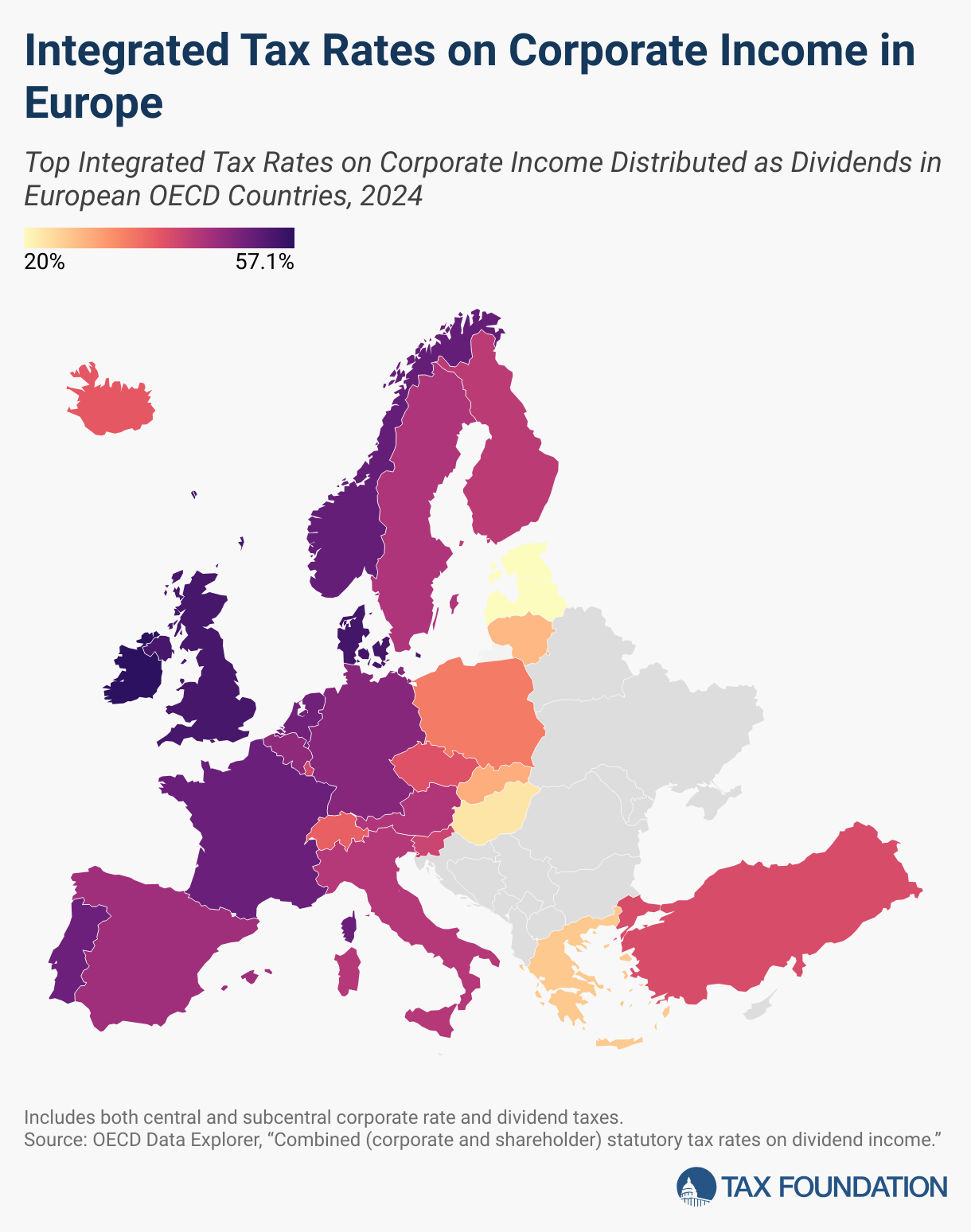Products You May Like
For dividends, Ireland’s top integrated tax rate was the highest among European OECD countries (57.1 percent), followed by Denmark (54.8 percent) and the United Kingdom (54.5 percent). Estonia (20 percent), Latvia (20 percent), and Hungary (22.7 percent) levy the lowest rates. Estonia and Latvia’s tax on distributed profits means that the corporate income tax is the only layer of taxation on corporate income distributed as dividends.
For capital gains, Denmark (54.8 percent), Norway (51.5 percent), and France (51 percent) have the highest integrated rates among European OECD countries, while Switzerland (19.7 percent), the Czech Republic (21 percent), and the Slovak Republic (21 percent) levy the lowest rates. Several European OECD countries—namely Belgium, Czech Republic, Luxembourg, Slovakia, Slovenia, Switzerland, and Turkey—do not levy capital gains taxes for long-held shares without substantial ownership, making the corporate tax the only layer of tax on corporate income realized as long-term capital gains.
On average, European OECD countries levy an integrated tax rate on dividends of 40.9 percent and 36.6 percent on capital gains. In comparison, the United States levies an average integrated top tax rate of 47 percent on dividends and 47.4 percent on capital gains.
Double taxationDouble taxation is when taxes are paid twice on the same dollar of income, regardless of whether that’s corporate or individual income.
of corporate income can lead to economic distortions, such as reduced savings and investment, a bias toward certain business forms, and debt financing over equity financing. Several OECD countries have integrated corporate and individual tax codes to eliminate or reduce the negative effects of double taxation on corporate income.
2024 Notable Changes
- Over the past year, some countries have raised their statutory corporate rates, including the Czech Republic (from 19 to 20 percent), Iceland (from 20 to 21 percent), Slovenia (from 19 to 22 percent), and Turkey (from 20 to 25 percent). Others have raised their top personal tax rates on capital gains, such as the Netherlands (from 32 to 36 percent) and Spain (from 26 to 28 percent). In contrast, Austria has reduced its statutory corporate rate from 24 to 23 percent.
- The United Kingdom’s government is planning to raise the top rate on capital gains from the sale of shares from 20 to 24 percent, which would move the country’s integrated tax rate on capital gains from 40 to 43 percent.
Stay informed on the tax policies impacting you.
Subscribe to get insights from our trusted experts delivered straight to your inbox.
